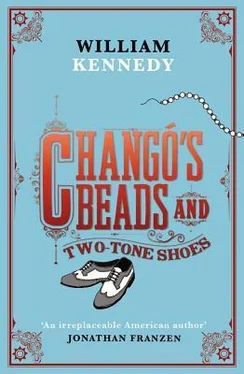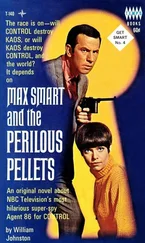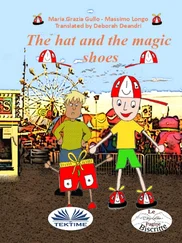Quinn continues to resurrect the dead baby that doesn’t exist: dead before a birth that never was, archetype of the meritocracy of the lost, who leave an unexpungeable stain on the imagination. Do the litany: the glass-jawed, the fallen away, the ignorant, the passive, the skeptics, the cocksure-never-sure — none of them know how to be otherwise — the color-coded, the suicidal rebels and the enraged have-nots, the martyrs and the clerics brainwashed by the mystery, the saints like King who always lose so grandly, the santeros who think they can ride out trouble on the backs of Changó and Oshun; also Bobby who might have been different for a few minutes, Hemingway at the end rediscovering how he used to lose, George and his ineluctable illusions, Gloria and Roy’s clichéd racial duet, Cody and his dying music, Max and his hot money, Matt and his declension, Renata with her entropic rebellion, her seriality, and Tremont, the only man in town tonight who doesn’t need a road map to get to the point: all members of the ad hoc collective that will not let Quinn sleep in peace.
Matt heard Quinn talking and came out of the darkness toward the street.
“Did you find the baby?” Quinn asked.
“He found something,” Matt said. “Could be a baby.”
“What you gonna do with that baby?”
“I don’t know if it’s a baby. Could be something else. Could be a pair of shoes. Could be a machine gun.”
Tremont came out of the alley with the gun wrapped in the burlap sack. He heard the word “baby” and put his right hand inside the sack.
“These fellows wonder if you found the dead baby,” Quinn said to him.
“I found a baby in a vacant lot ten years back,” said Tremont. “He wasn’t dead.”
“Is that my gun, Tremont?” The voice was Zuki’s.
“Any gun I find is mine,” Tremont said.
Zuki and a young black stood behind the others. Zuki was the one with Penny at the protest.
“You’re Zuki,” Quinn said. “Who you working for?”
“I don’t know you,” Zuki said.
“I’m Tremont’s biographer.”
“And I’m his confessor,” Matt said.
“I know who you are,” Zuki said.
“Where did that gun come from?” Quinn asked. “Is that government issue?”
“I got no argument with you,” Zuki said. “The man here borrowed my property. I want it back.”
“Are you an Albany cop? BCI? FBI?”
“I need that gun, Tremont,” Zuki said.
“Tremont needs it,” Quinn said.
“Tremont, what game are you playing with me?” Zuki said.
“The dead baby game,” Quinn said.
Zuki stepped toward Tremont and made a grab for the gun. Matt hit him with a right hand, a horizontal trajectory to the blow, 22 mph, and Zuki shuffled backward but didn’t fall.
“Don’t touch Tremont,” Matt said. He eyed Zuki who drifted into the Hapsy crowd with his young buddy, casting glances Tremont’s way.
The black Chevy that had passed them earlier came up Bleecker again, a second car behind it carrying five white men. The Chevy slowed as two white men hanging out the front and back windows flung Molotovs into the crowd, one exploding against the stoop over Hapsy’s, the other hitting the front wall of the next house and splashing fire on two men on the stoop. “Keep rioting, niggers,” one man yelled from the Chevy.
Quinn saw Doc’s car turning off Green onto Bleecker and idling in the street, up from the corner near the dead delivery truck, and he grabbed Tremont’s arm. “Now,” he said, and the three quickstepped toward Doc’s headlights, Tremont clutching the wrapped dead baby.
The Chevy driver peeled out wildly after the Molotovs, his tires screeching into a skid, his left tail sideswiping the car with Stevie Wonder. He swerved erratically, climbed the curb just past Hapsy’s, ramming a porch with three more men on it, then tried to back out onto the street. But the blacks were all over the car and pulled him out and wrestled him and his passengers into a free-for-all with tire irons, pipes, and a sap wrapped around one white man’s fist. Two women in silk kimonos came out of one house with brooms to fight a fire flaring on the porch, Trixie’s porch. Quinn saw Trixie come onto the stoop in a long black kimono and stilettos, and with a brass fire extinguisher splash a stream on the fire that was getting so much attention, and it vanished. Two whites were down in the street, being kicked, and on the next stoop two men were in flames. Trixie’s girls slapped at the blazing men with their brooms and half a dozen blacks were rocking the Chevy, trying to tip it.
The second car, a Buick station wagon with windows down — and men with more Molotovs, unlit but ready to fly, but the goddamn Chevy’s a blockade — retreated backwards down Bleecker at rocket speed and past the dead panel truck, arriving at the corner seconds after Doc’s car arrived, another goddamn blockade out of nowhere, and rammed Doc’s left fender, twisting both cars sideways in the street. Doc and his partner, Warren Prior, leaped out of the car, billy clubs at the ready, not for the crazy whites but for a dozen black men coming at them.
“Jesus,” Doc said, “it’s downtown Nairobi.”
Men had come streaming out of Bleecker Street houses as the invasion force was recognized, ready to unleash communal rage not only on the white bombers, whom they outnumbered two to one, but also on Doc and Prior, whom they saw as a third element of this Bleecker Street invasion force. Black youths leaped on Doc, pummeling him, trying to bring him down, but he was an immovable 230-pound hulk in his gray suit and straw hat, the club in his right hand a whirling appendage that never stopped moving. A black man punched Prior repeatedly in the back of the neck as he tried to cope with the attackers, and Prior swung his club a hundred and eighty degrees and the black man dropped. The whites in the second car had come out fighting and Doc clubbed his way out of an attack to deck a white man reaching into the backseat of the Buick for a shotgun. “Niggerlovin’ cop,” the man said as he crumpled under Doc’s blow. Another black slapped open a straight razor in his palm and slashed Doc’s front, cutting his suitcoat, then felt the slam of the club against his throat, and down.
Quinn, Matt (who had lost sight of Zuki) and Tremont stood out of the fray, near Chloe’s corner, no one attacking them. Tremont pulled off the burlap sack to reveal the AR-15 all of a piece. He snapped in the loaded magazine, gave a Geronimo yell as he fired a shot into the sky, then showed the muzzle of his rifle to the blacks attacking Doc. The meaning of the yell, the weapon, the shot, did not get the full attention of all attackers, but they paused long enough for Prior to club one and for Doc to reach for his pistol.
“Way to go, bro,” a black youth told Tremont. “Waste ’em.”
“Let him be,” Tremont said to the youth.
“He’s a pig,” the youth said.
“Let him be,” said Tremont.
“Gimme that gun, I’ll do it,” the youth said.
Tremont fired two shots into the side of the Buick and the youth backed away and the fighting stopped. Blacks rocking the Chevy tipped it into the street, a few scrambling for cover at the sound of gunfire, which had elevated the battle to another level, and the wail of a siren was heard.
A black youth tossed a flaming book of matches into the backseat of the Buick, igniting spilled gasoline from the unused Molotovs, and everybody moved away from the car.
Quinn stepped in front of Tremont and snatched the rifle from him. “Goddamn it, man, I told you to keep this in its case. You want to get shot?”
Quinn handed the gun to Doc as three police cars arrived behind them and cops in riot gear fanned out over the block, the combatants black and white scattering into the deepening darkness.
Читать дальше












